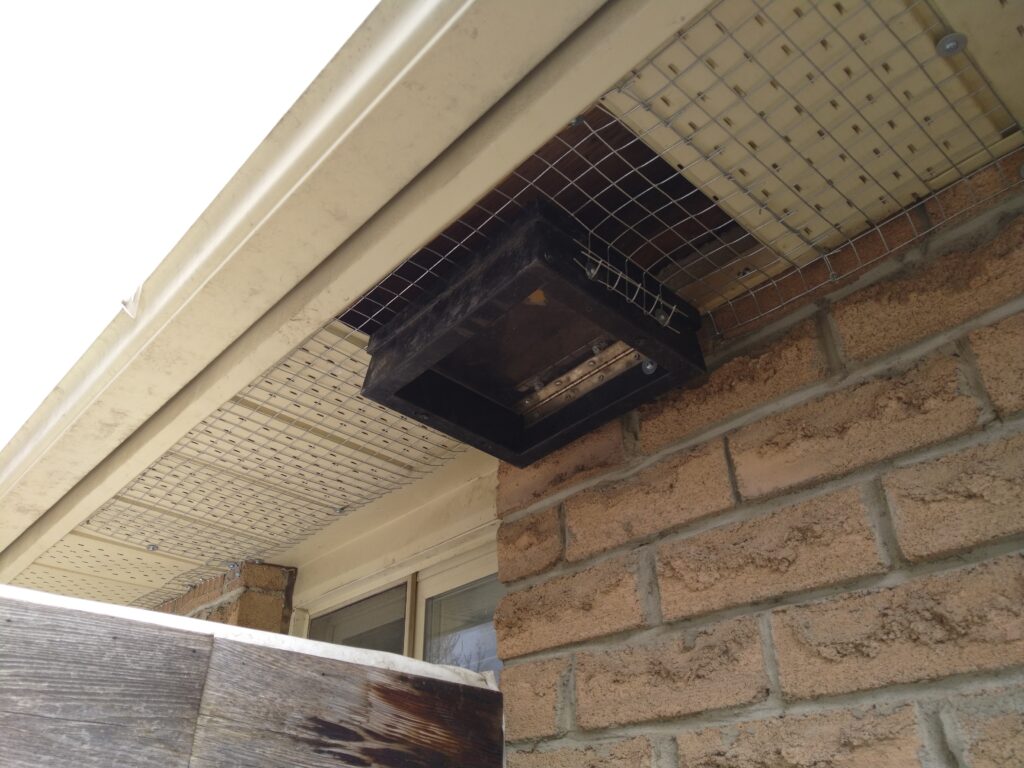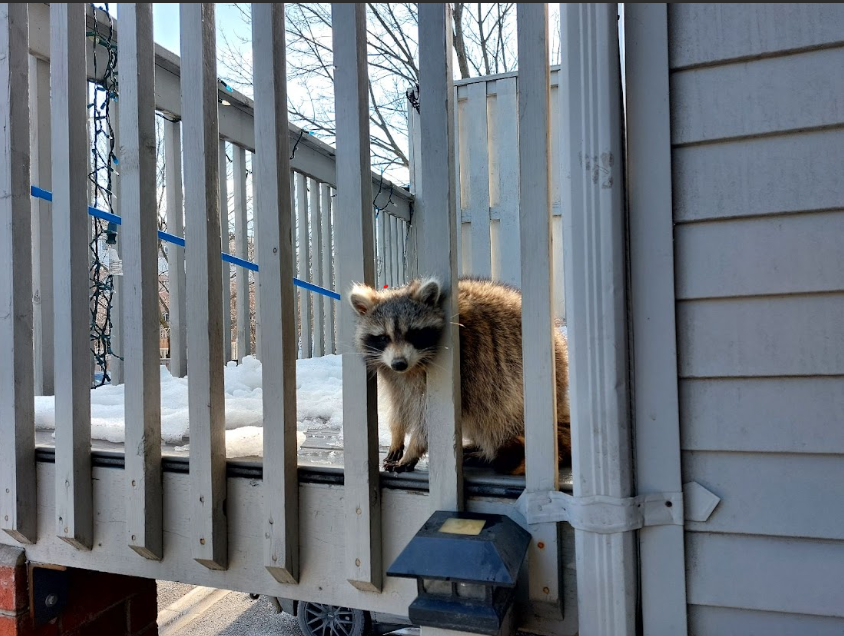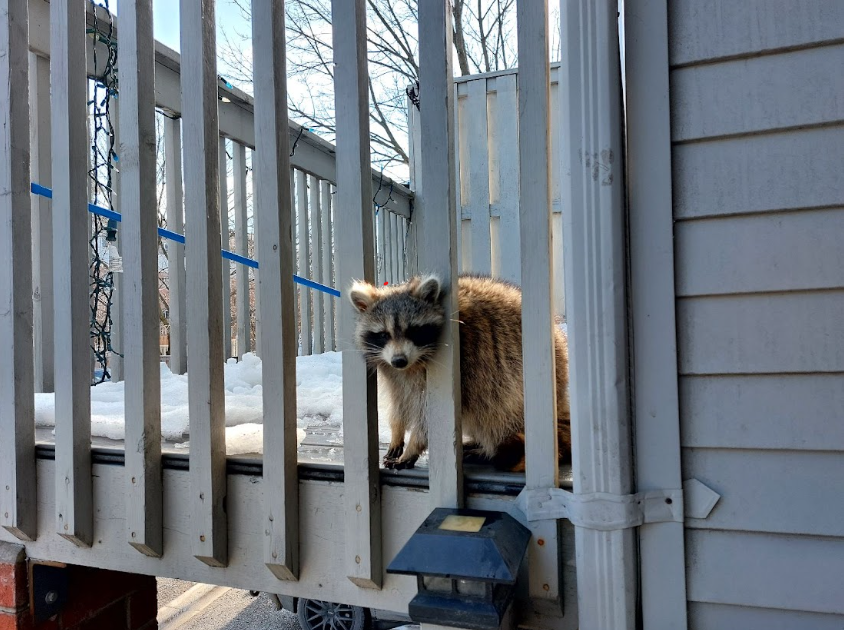As dawn wanes, and dusk ascends, a flurry of activity emerges from the shadows – they are our nocturnal neighbors, the raccoons. These creatures often intrigue us with their strikingly bandit-like appearance and reputation for being mischievous. However, their behavior can also pose a significant challenge to homeowners.
So, how should you react if you spot one of these night-time visitors on your property? What signals might suggest that a raccoon has taken up residence in your home? Most importantly, why should you resist the temptation to get close to raccoons despite their seemingly harmless demeanor?
In the forthcoming sections, we embark on a journey to discover these answers, providing you with insights into raccoon behavior and offering expert advice on managing any raccoon-related challenges that might occur. From recognizing signs of infestations to identifying the inherent dangers they present and then exploring how professionals can safely and humanely get rid of raccoons, we’ve got you covered. Trust us, you want to avoid tackling this DIY style!
Beyond this, we’ll highlight the crucial role that a wildlife control service can play in managing raccoon situations at your home. The value they bring is invaluable, providing peace of mind and ensuring the well-being of both you and the critters involved.
Get ready to unravel the mystery of the raccoon world and learn why keeping your distance is the best policy. Your safety and that of your home may depend on it.
What are the Typical Behaviors of Raccoons?
Raccoons are nocturnal creatures, primarily active during the evening and night. Recognizing their behavior can help anyone to understand the importance of keeping a safe distance from these critters. Here are some typical behaviors to expect:
- Nocturnal: Raccoons are primarily nocturnal creatures. This means they do most of their feeding and roaming at night. If you notice disturbances in your yard or see evidence of trash rooting, raccoons could be the culprits. Additionally, their nocturnal behavior often leads to quiet invasions into properties unnoticed until significant damage is done.
- Curiosity: One of a raccoon’s defining traits is its curious nature, which means they often end up exploring houses and yards. That’s why it’s not uncommon for homeowners to find raccoons in unexpected places like attics or basements. Despite their playful demeanor, these curious intruders can cause considerable damage to your property if not promptly handled.
- Agility: Raccoons are highly agile creatures capable of opening latches, climbing trees, and even scaling walls. Their agility combined with their curiosity can tempt them to enter your house, leading to potential infestations. They can reach any part of your home, from the attic to the basement, making them one of the most flexible residential invaders.
- Social behavior: Raccoons are typically solitary creatures but can display social behaviors like banding together for food or protection, particularly during harsh weather. This group dynamic, often referred to as a ‘nursery,’ can become problematic if it occurs near human habitations as they become bolder and more difficult to displace.
Understanding these behaviors makes it clear why homeowners should maintain a safe distance from raccoons. Their curiosity and dexterity can lead to unexpected and unwanted encounters that may pose threats to your home and health.
Why Is It Important for Homeowners to Keep their Distance from Raccoons?
Raccoons are naturally curious, highly intelligent creatures with skilled paws that can open doors, latches, and even undo complex locks. This tendency for problem-solving makes them a challenge for homeowners, especially those who inadvertently attract these creatures with easily accessible food sources. However, before you entertain the thought of a close encounter with these masked bandits, it’s critical to understand why you should keep your distance.
Aggressive When Cornered
Raccoons are generally not aggressive animals. However, if they feel threatened or cornered, they can become dangerously aggressive to protect themselves or their young. The last thing you want is to risk a raccoon bite or scratch, which could potentially transmit diseases to you or your family members.
Carriers of Disease
One significant reason to keep your distance from raccoons is the potential risk of disease. Raccoons are known carriers of rabies, a severe and often deadly disease that can be transmitted to humans through a bite or scratch. Moreover, their feces may contain raccoon roundworms, an equally dangerous parasite that can cause severe complications in humans if accidentally ingested.
Damage to Property
While raccoons may appear cute and cuddly, their strength and dexterity can cause extensive damage to your property. These nighttime marauders can tear apart ducts, chew through wires, and even destroy your home’s structural elements to get into your attic or basement.
As opportunistic feeders and curious creatures, raccoons tend to rummage around garbage cans or compost bins, leaving an unmistakable mess. Their strong, nimble fingers can open doors, rip open bags or even cause damage to your roof or vents while seeking entry points.
While it can be intriguing to watch the antics of raccoons from a distance, it is never safe to approach or try to handle them. If you spot signs of a raccoon on your property or suspect an infestation, contact a professional wildlife control company, like our team in Severn, Anne Arundel County. We specialize in raccoon removal in Severn and provide expert services to get rid of raccoons safely and humanely.
What are the Major Signs of a Raccoon Infestation?
Raccoon infestations can readily transform your serene home into a chaotic nightmare. But what are the telltale signs indicating a raccoon invasion? Let’s explore.
- Noise: Raccoons are nocturnal animals, meaning they are most active at night. If you hear unusual sounds like rustling, squeaking, or heavy thudding, especially in the late evening hours, they might be raccoons. They tend to inhabit areas such as attics, chimneys, and wall voids in your home.
- Droppings: Piles of feces around your yard or home are a common sign of a raccoon infestation. Raccoon droppings are relatively big and contain undigested food articles, and are usually found in proximity to food sources or nesting areas.
- Pathways: Raccoons typically take the same path repeatedly to reach their food sources. You may notice worn-down areas, trampled vegetation, or muddy tracks leading to your home.
Recognizing these signs early and taking necessary action is vital in mitigating the risks associated with raccoon infestations.
How Can a Professional Get Rid of Raccoons for You?
Handling raccoons and their removal should always be left in the hands of professionals. This is where we, a team of certified wildlife control technicians from Anne Arundel County, step in. We take care of all aspects of raccoon removal in Severn, ensuring both your safety and that of the raccoons.
Understanding Raccoon Removal
Professional wildlife control services like ours employ humane methods to get rid of raccoons. These methods are designed to be non-invasive and non-lethal, maintaining respect for the animals’ rights while taking care of your needs. The process often includes the following steps:
- Detection: Our team conducts a thorough inspection to understand the extent of the raccoon infestation.
- Removal:: We take all the necessary steps to safely remove every raccoon on the property.
- Cleaning: Our team will thoroughly clean and decontaminate all the areas where the raccoon was living inside your home.
- Prevention: Finally, preventive measures are implemented to ensure raccoons don’t return.
What are the Unique Benefits of Hiring a Professional Wildlife Control Service for Raccoons?
When it comes to dealing with a raccoon infestation, the best approach is to engage a wildlife control service. This isn’t just because they are professionals but due to the unique benefits they provide, especially when dealing with raccoons. Let’s explore these benefits in depth, shall we?
- Trained Handlers: Working with raccoons is far from being a walk in the park. They can be aggressive and dangerous, especially when cornered or when young ones are involved. As such, handlers from our team have undergone rigorous training to safely and efficiently remove your raccoons. This minimizes risk to homeowners and ensures a humane approach towards the animals.
- Knowledge and Experience: Underpinning our efficiency is a wealth of knowledge and experience dealing with raccoon behavior. Our professionals understand the habits, diet, breeding patterns, and other important aspects related to these creatures. This decreases the odds of re-infestation and ensures cohabitation with nature is maintained.
Don’t let a raccoon problem get out of hand. Trust the experts and take advantage of the unique benefits a professional wildlife control service like ours has to offer. In doing so, you preserve the safety and sanitation of your home, while also ensuring a humane solution for our furry friends. Deterrence, removal, and prevention are our operational battle cries, and we are always more than ready to make your home safe again.

Choose Skedaddle: Your Trusted Partner in Wildlife Control
In conclusion, understanding raccoon behavior and recognizing the telltale signs of an infestation are the first steps toward effective wildlife control and peace of mind in your home. Our comprehensive approach combines humane methods and knowledgeable expertise to effectively get rid of raccoons, preventing further infestations and damage to your property. Safeguard your home with Skedaddle Humane Wildlife Control in Severn, Anne Arundel County, your trusted partner in wildlife management.
Recognize the dangers of raccoon infestations. Protect your home and your family. Contact us today to request a quote and learn more about our services. Skedaddle – where safety and humanity go hand in hand.




